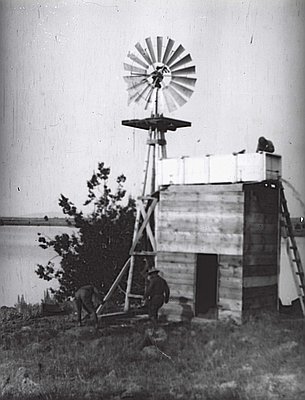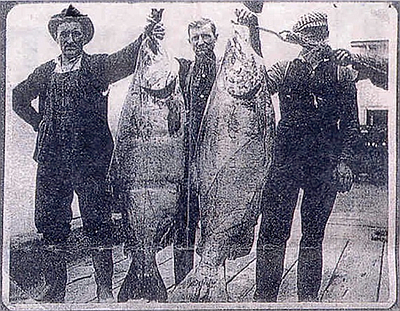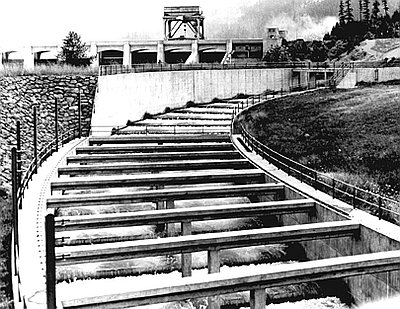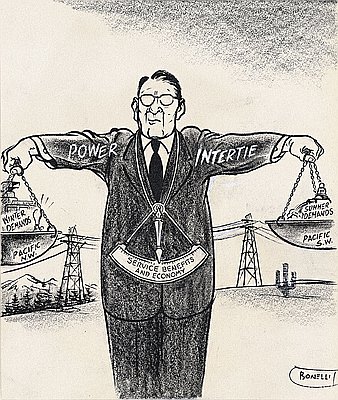John Harrison
John Harrison is the Information Officer for the Northwest Power and Conservation Council, a compact of the states of Idaho, Montana, Oregon, and Washington that conducts energy and fish and wildlife recovery planning. As Information Officer, Harrison writes and edits Council publications and also is the news media contact. Prior to the Council, he was a newspaper reporter and editor. He is the author of an almanac-style history of the Columbia River on the Council’s Web site. He has a B.A. in communications from Washington State University and an M.A. in journalism from the University of Oregon.
Author's Entries
-
![Climate Change and the History of Energy in Oregon]()
Climate Change and the History of Energy in Oregon
Unlike in other parts of the country, hydropower is the largest source of electricity in Oregon and the Northwest. As a result, the region has a running head start on reducing greenhouse gas emissions from the electricity sector of the economy to help meet clean-energy policy goals in response to …
Oregon Encyclopedia
-
![Columbia River Treaty (1964)]()
Columbia River Treaty (1964)
The high-voltage power lines that march across central Oregon, linking Columbia River dams to Los Angeles, California, are “proof of the power of cooperation and unity” between the United States and Canada, President Lyndon Johnson declared on September 17, 1964. The president was speaking at the Intertie Victory Breakfast in …
Oregon Encyclopedia
-
![June Hogs (salmon)]()
June Hogs (salmon)
Imagine a single salmon weighing eight-five pounds or more. These summer-run Chinook salmon, named "June hogs" for their hog-like fatness from back to belly, once plowed the waters of the Columbia from the estuary to the upper reaches of the river in British Columbia. They were prized by lower-river gillnetters, …
Oregon Encyclopedia
-
![Mitchell Act (1938)]()
Mitchell Act (1938)
Congress passed the Mitchell Act (Public Law 75-502) in 1938, named for Hugh C. Mitchell, director of Fish Culture for the State of Oregon during the 1930s. The act was a response to the serious decline of salmon and steelhead runs on the Columbia River, the result of …
Oregon Encyclopedia
-
![Northwest Power Act (1980)]()
Northwest Power Act (1980)
In 1980, after four years of deliberation and several attempts, Congress passed a law intended to ensure low-cost electricity to Northwest ratepayers from federal dams in the Columbia River Basin and money from those same ratepayers to mitigate the impacts of the dams on fish and wildlife. The Northwest Power …
Oregon Encyclopedia
-
![Pacific Northwest–Southwest Intertie]()
Pacific Northwest–Southwest Intertie
No area of the West is isolated from the western electric power supply, which is interconnected by one big high-voltage transmission system from British Columbia to northern Mexico and from the Continental Divide to the Pacific Ocean. When Oregon and other Northwest states need power for a heating load in …
Oregon Encyclopedia
-
![Sandy River]()
Sandy River
In 1805, William Clark called the 55-mile-long Sandy River the “quick Sand river” after attempting to cross the shallows at its mouth—and getting stuck. “I arrived at the entrance of a river which appeared to Scatter over a Sand bar,” Clark wrote in his journal for November 3, 1805, “the …
Oregon Encyclopedia
-
![Umatilla River]()
Umatilla River
The Umatilla River flows out of the forested northwestern slopes of the Blue Mountains in northeast Oregon, then across dry plains of irrigated farmland and through the City of Pendleton before emptying into the Columbia River at the City of Umatilla. It is a river of contrasting and historically conflicting …
Oregon Encyclopedia
-
![Walla Walla Basin]()
Walla Walla Basin
Long before the wheat and cattle ranches, the orchards and onion farms, before the vineyards and restaurants and shopping malls, when this place was occupied by several bands of what are today the Confederated Tribes of the Umatilla Indian Reservation, the Walla Walla Basin was known as Land of Many …
Oregon Encyclopedia










